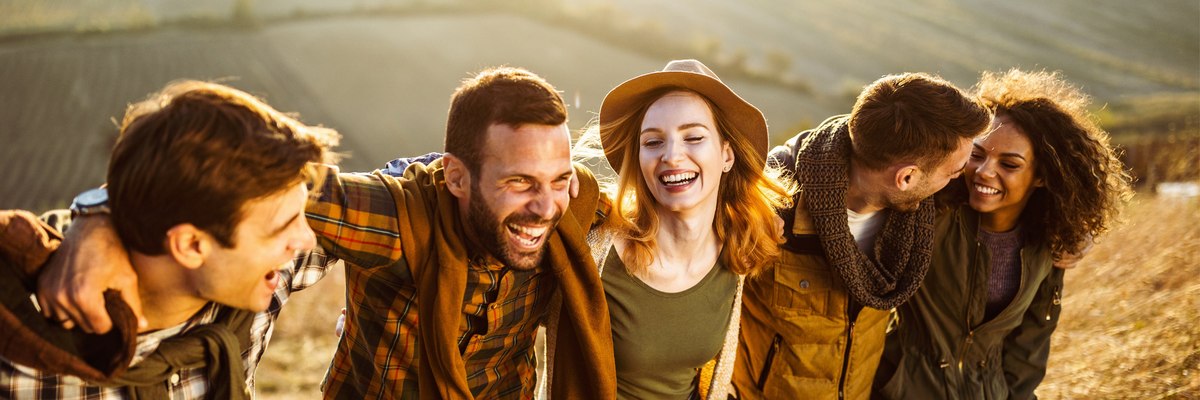Easter is here and our long, enforced hibernation in our own homes is starting to come to an end. In short, ‘normalcy’, the term they adopted after the First World War, is set to return. But what is normal? Is it just going back to the same old same old, or something rather different? And what do we actually want it to be?
Boris Johnson has confessed to having got quite a few things wrong in the last year but, as far as I can tell, he has not owned up to getting himself hopelessly trapped in impossible metaphors. ‘Road map’ comes to mind. There are really only two things you can do with a map: spread it out across the table and give it a good study, or fold it up and put it away again until you next need it. But road maps, as the metaphor for our salvation and freedom, rather lack the vibrant verb to get going. So the Prime Minister, in trying to cheer us up with the thought that the long, dark lockdown winter is nearly over, has had to make do with telling us that his road map is still ‘on course’.
There was the easing of restrictions earlier this week. More are due later this month and then again mid-Ma. And then, at the end of June, if everything goes according to plan, all restrictions will be lifted and life pre-Covid will be restored to us. Then the road map can be put back in a drawer where it can remain buried among other stuff at least until such a time as we may have need for it should a virus once more decide to have fun by taking total control of our lives again.
But you can’t just lock away a whole traumatic year as though it never happened and pretend it won’t have any effect on the life we resume. Living is a dynamic business, change its only constant. Nothing, as the book of clichés puts it, will ever be the same again. The normalcy of the 1920s turned out to be utterly different from what the world was hoping for. The years leading up to 1914 soon came to be looked back upon as an era of peace, calm, and leisured refinement: the apogee of a lost civilisation. Yet civilisation could never be quite the same after the trenches.
It’s a tendency of our times, or perhaps of journalists in all times, to risk getting things out of proportion so let’s try to avoid that. Covid has not been the trenches. To put it at its baldest its main effect has been to bring forward the deaths of many already old people. WW1 had decimated a whole generation of young men. So the point of the comparison is not to measure a cataclysm against a pandemic in the scales of human suffering, but simply to point out that in both cases the craving for the return of the status quo ante tends not to be satisfied. What, then, should we expect this time?
Let’s start with the dead certs of normal life restored and then work to the changes now on the agenda but whose outcomes seem most difficult to predict. So what bit of ‘normal’ seems most certainly to be restored once it’s allowed again? The exercise of freedom would seem top of the list. People will accept curbs on their freedom when they think it necessary, even to the point of pressing government to impose more curbs than politicians think they dare. But take away the curbs, and we’re off. Just look at the photos of what happened when the sun came out and the temperatures soared earlier this week: beaches packed and parks ram-jam full of young people let off the leash. We don’t like confinement, which is why imprisonment is the penalty for crime. We want to get out and about again.
And what will we do with this freedom? A couple more near dead-certs. It may be unfashionable to say so, but family life remains the foundation of our society, probably of all societies. Covid has disrupted it and freedom will restore it. That’s not quite to say that we will all rush into the arms of our previously cut-off relatives. Families have always been rather more complicated things than that and the ‘excuse’ afforded by lockdown not to visit the parents and grandparents, the isolated aunts and uncles, has not been universally unwelcome. But it’s hard to see why normal service with regard to the indissoluble mix of love, affection, obligation and duty that lies at the core of family life won’t be resumed pretty much as before.
Similarly, if for no other reason than that the hormones of youth dictate it, young men and young women, released from the shackles of lockdown, will once again go in search of relationships with each other, casual or long-term. Or at least they will if trust between the sexes is not already in the process of breaking down, as recent evidence from schools (bordering on the unbelievable to someone of my generation) seems to be suggesting. But if it is breaking down, the causes have nothing to do with Covid: there are other forces at work destroying the ‘normal’.
You can make your own list of what you think will emerge unchanged from the pandemic. More interesting is what looks more likely to be changed. You could think of this under the heading: ‘Lockdown has shown us that things don’t need to be how we used to think they had to be.’ Much has already been talked about in this context. The most obvious is our attitude to work. Our notion of work used to be informed by one verb above all others: the verb ‘to go’. We ‘went’ to work. For the last year the verb has been dumped, at least by large numbers of people. They’ve gone on working but not ‘gone’ to work. There’s already been vast speculation as to whether this is going to prove a permanent change, with the old model of office clothes, commuting, the office itself, the after-work beer and the commute home again being superseded by the casual clothes, the back-bedroom office conversion and Zoom. Some banks have been telling their staff they can stay away for good if they fancy; new tower blocks are empty; rentals are collapsing.
Zoom is already to many people a curse. Couples are starting to realise that relationships are best nurtured by time apart. Commuting has its advantages as periods of solitude, anonymity and self-reflection – or just doing the crossword. And if innocent flirting lights up your day, then it’s hard to do it at home. We shall see.
There is a Covid-induced realisation that ‘things don’t need to be how we used to think they had to be’. Fair enough. But it can be put it in more extreme form: ‘whatever did we think we were doing back then!’. It’s a question we usually apply with hindsight to historical eras long before our own: how could they have engaged in human sacrifice! How could they have supported slavery! How could they send small boys up chimneys!
One wonders what future generations may well say of us. How could they have eaten meat! How could they have driven around in cars! Etc. But we can reasonably ask it of lives we were living only a couple of years ago.
I offer you two examples of questions which, even if Covid didn’t put on the agenda, it has at least forced us to look at afresh. One is education and the mad focus on exams. Covid made us abandon exams for awhile and now we’re seriously asking why we bothered in the first place and whether we should go back to all of them. Maybe dump the pointless GCSE?
Another is air travel. Post-lockdown, the assumption is that everyone will want to get back on to their cheap flights and head straight to the sun just as soon as they’re allowed. And maybe that’s the case. But there’s another way of looking at it especially if, like me, you live in West London or near another major airport. We’ve had a year of benignly quiet skies. Do we really want to go back to low-flying planes passing overhead every two minutes from dawn till well beyond dusk? And to think we used to take it as virtually inevitable that the third runway would be built at Heathrow. It’s still official policy, by the way. Is it the normalcy we still crave?
These are what you might call public issues. But there’s personal stuff too. It has, of course, been almost obligatory to talk of lockdown as a period of personal suffering, of not being able to see our friends, go to the pub and all the rest of it. And there’s no denying that for many people, especially the lonely, it has indeed been an ordeal. But not for everyone.
For those of us who would much prefer to sit at home reading a book rather than trudge of to some ghastly hotel for a “reception” or even a tedious theatre performance, it has been most welcome. . Soon it will be lifted in the interests of restoring normalcy. But do we want to go back to the old normal? Will we be allowed to defy it and create a new normal in which maximising activity is no longer the standard by which our lives will be judged, but will be replaced by minimising unnecessary activity? Will peer pressure allow it?
All this will come out in the wash. Whether the 2020s will be as different from the 2010s as the 1920s were from the 1900s and 1910s simply remains to be seen: we can’t yet know what of the ‘old normal’ still has life in it or what the ‘new normal’ will be. But perhaps the deepest and potentially most fundamental uncertainty is what the pandemic may have done to our relationships with each other.
If the basic ethic of the old normal was ‘come together’, the loudest injunction of the pandemic has been ‘stay apart!’ We have had over a year of keeping our distance, of being wary of other people, of staying out of their way, of seeing other human beings as primarily potential carriers of illness, even of death. Is that mutual apprehension simply going to disappear with the summer weather and the Prime Minister telling us, finally, we can go out to play? Possibly it will. The evidence, from recent days, of the alacrity with which people flock together (to the point of having to be reminded to keep two metres apart because it’s not yet all over) would suggest we’ll be going back to the old normal of enthusiasm of crowds.
But this is summer. Will we still have this attitude after the clocks go back again, and meeting means crowds indoors, stuffy rooms, no elbow room? Will we want to squash into a winter train carriage with everyone coughing, jostle at a wheezing theatre bar, or fetch up at a friend’s over-subscribed Christmas party where, you may remember from last time, half of the guests looked as though they had a cold and should have stayed at home, and you came away wondering whether you were getting a sore throat? Again, maybe we will; maybe vaccination will have inoculated us against wariness of other people.
But I wonder. Because there is one ‘normal’ I don’t see us returning to. And that concerns the agent at the centre of this story: the virus itself.
I think it’s fair to say that before the pandemic most of us didn’t think much about viruses or, if we did, we tended not to take them too seriously. We knew about viral pandemics, of course, but they happened continents away, and if there were also viruses here too, well they were the things doctors told you you’d got when they didn’t really know and they fobbed you off with the line: ‘it’s probably a virus so there’s nothing I can give you for it. Take paracetamol, drink lots of water, rest as much as you can blah blah blah.’ Viruses were an irritant, an inconvenience, nothing more.
We won’t be going back to that ‘normal’, the normal of our sense of invulnerability. Now we know just how very vulnerable we are. In the days when I was still allowed to go walking in the Welsh hills, I’d come across those lines of disciplined ants scuttling across the path doing their business, and I’d think: ‘Yes, they’re biding their time. They were here long before us, and they’ll still be here long after we’ve gone.’ It’s the same with viruses, except that we can’t see them, they go back even longer in time than the ants and, unlike the ants, they can most certainly do us in. We can keep battling against them with vaccines, but they’re always ahead and, like the ants, they’ll see us out. It’s that realisation, perhaps, that suggests ‘back to normal’ will never quite be the same: the hidden threat will no longer be hidden.
What’s your view about what ‘normality’ after lockdown will be like, and what you’d like it to be like? Let us know.








